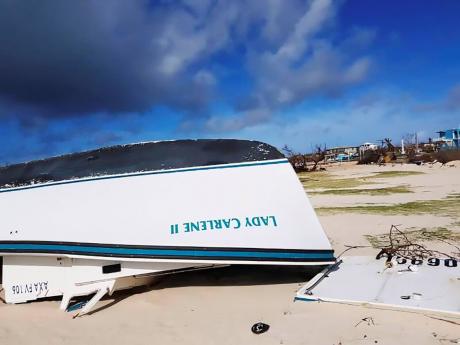Earth Today | Help for Caribbean fisherfolk
FISHERFOLK from Anguilla and Montserrat have been given a shot in the arm to boost resilience, and at a time when Caribbean fisheries, which earns some US$5 billion to US$6 billion in foreign exchange annually, is among the sectors most vulnerable to climate change impacts.
The Caribbean Natural Resources Institute (CANARI) recently awarded the Anguilla Fisherfolk Association (AFFA) and the Montserrat Fishing and Boaters Association US$24,000 in small grants “to support practical action projects that demonstrate ecosystem stewardship to improve climate resilience and livelihoods” in the two islands.
The award of the grants form a key component of the project ‘Climate Change Adaptation in the Fisheries of Anguilla and Montserrat’, funded by the Darwin Initiative through the United Kingdom Government.
“Assessments conducted under the project reveal that the fisheries sectors of both islands are in fact vulnerable to the impacts of climate change and climate variability. Consequently, given their importance to livelihoods and national food security, building resilience of the small-scale fisheries sectors in Anguilla and Montserrat is critical,” CANARI has noted.
HURT LIVELIHOODS
“Fishers in both islands have reported impacts to their livelihoods triggered by climate-related effects, such as higher sea surface temperatures and more intense storms, on coastal and marine ecosystems. For example, fishers have noticed that the productivity and quality of nearshore marine ecosystems, such as coral reefs, have declined over the years. This is in part due to the warming of coastal waters, but also to human-based sources of pollution,” the entity added.
“This decline in productivity has resulted in increased fuel costs and safety risks for fishers, who now have to travel farther out to sea to cooler, more productive waters where catches may be more favourable. In the case of Montserrat, it has also meant an increased reliance on Fish Aggregating Devices and pelagic fisheries,” CANARI noted further.
Meanwhile, fishers in Anguilla and Montserrat are not alone.
Writing in her 2017 research paper ‘Beyond 1.5 degrees Celsius: vulnerabilities and adaptation strategies for Caribbean Small Island Developing States’, Professor Michelle Mycoo articulates what hangs in the balance for Caribbean fisheries.
“Given the economic and environmental importance of the fisheries sector in the Caribbean, a 1.5 degrees Celsius temperature increase may cause a spike in warm water temperatures and increased frequency in natural disasters, which would result in extensive coral reef damage and reduction of the fishing stock. Furthermore, the warming waters will drive fish away from the equator, thus, further diminishing the overall fish population in the Caribbean,” she warned.
The risk is such, Mycoo said, that it requires immediate action.
“If there is no action to reduce these impacts, permanent fishing camps on low-lying offshore cays may be completely submerged by future sea level rise. An increase to 1.5 degrees Celsius would cause irreparable damage to the fisheries sector in the Caribbean,” she said.
Meanwhile, the CANARI grants are to see fisherfolk in Montserrat engaging with media, schools and other civil society stakeholders to create a ‘Fishers against marine pollution’ campaign, including a clean-up activity for ghauts, shallow water reefs and beaches to help raise awareness about reducing marine litter.
In Anguilla, fisherfolk will work with the Anguilla National Trust to help restore marine habitats in the Prickly Pear Marine Park. The expectation is that the actions will lead to the creation of new habitats and sanctuary spaces for commercially and ecologically important marine species, as well as other nearshore and coral reef fish species.

